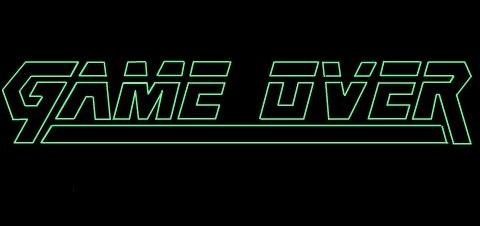
DIGITAL GAME STUDIES SEMINAR 2017


The Institute of Digital Games at the University of Malta is proud to announce our 2017 digital games studies seminar, run in collaboration with the BTK University of Art and Design in Berlin, Germany.
The seminar will take place over three days, from September the 18th to September the 20th, at the Institute of Digital Games (Msida, Malta) and will offer a two-hour lecture each morning, and an hour-long workshop each afternoon.
This event is free and open to everyone, but the number of participants is limited to 12. Reserve a spot for any of the available days (or even all of them) by contacting digitalgames@um.edu.mt and registering for the event!
THE PROGRAM:
► Day 1 (Sept. the 18th at 10.00 @IDG): TOYING AROUND WITH THOUGHT EXPERIMENTS
Speaker: Dr. Stefano Gualeni (Institute of Digital Games, University of Malta)
For the most part, thought experiments consist of questions about hypothetical situations. They are useful philosophical tools for revealing ambiguities and contradictions in the ways we articulate thoughts and orient our moral compass. In this talk, Dr. Gualeni will introduce the audience to the possibility of framing thought experiments as interactive and playful virtual experiences. During the talk, he will show and engage with examples of ‘playable philosophy’, including his latest philosophical videogame about soup and philosophy of language (http://soup.gua-le-ni.com).
Reading (after the lecture): Gualeni, S. 2016, “Self-reflexive videogames: observations and corollaries on virtual worlds as philosophical artifacts”, in G|A|M|E - The Italian Journal of Game Studies, vol. 5, no. 1. - http://www.gamejournal.it/gualeni-self-reflexive-videogames/
► Day 1 (Sept. the 18th at 13.00 @IDG): DESIGN ANALYSIS WORKSHOP
Interactive close-playing and critical analysis of Necessary Evil (http://evil.gua-le-ni.com)
► Day 2 (Sept. the 19th at 10.00 @IDG): The 'I' in the Game: An Introduction to Ludic Subjectivity
Speaker: Dr. Daniel Vella (Institute of Digital Games, University of Malta)
This session will consider the question, "Who am 'I' in the game?" The focus shall be on understanding the existence and subjectivity the game establishes for the player in the gameworld, distinct from the player's own subjective standpoint. Concepts from game studies like embodiment (Klevjer, 2006; 2012) and incorporation (Calleja, 2011) will be introduced, leading on to a presentation of Dr. Vella's model of ludic subject-positioning. Points discussed shall include the various formal structures that establish a subjective point of view for the player towards the gameworld and the interlinked relations of selfhood and otherness between the player and her in-game 'I'.
Reading (after the lecture): Daniel Vella, ""Who Am 'I' In the Game?": A Typology of Modes of Ludic Subjectivity." https://library.med.utah.edu/e-channel/wp-content/uploads/2017/02/paper_234.pdf
► Day 2 (Sept. the 19th at 13.00 @IDG): WORKSHOP ON GAME ANALYSIS
In this hands-on analysis session, students will put the ludic subjectivity model to work, playing a set of games and analyzing them in terms of their formal techniques of ludic subject-positioning.
► Day 3 (Sept. the 20th at 10.00 @IDG): EVERY GAME IS AN ISLAND
Speaker: Dr. Riccardo Fassone (University of Turin)
The talk will present some of the key concepts found in Fassone's 2017 book Every Game Is an Island. The book analyses notions such as ending, extremity, border in video games and makes a case for their relevance in game research. Dr. Fassone will present a number of case studies from the book and engage with theoretically complex subjects such as closure, caesura, and metagaming. He will also present his theory of video game exceptionalism, claiming that video games are an exceptional form of play, due to the material constraints of their digital nature.
Required reading (after the lecture): Every Game is an Island - Introduction and chapter one. Provided by the author in pdf format.
► Day 3 (Sept. the 20th at 13.00 @IDG): WORKSHOP ON METHODS FOR HISTORICAL GAMES RESEARCH
Dr. Fassone will conduct a workshop on some of the methods most commonly used in researching the history of games and discuss their characteristics and shortcomings. He will present a series of cases from his own historical research.

